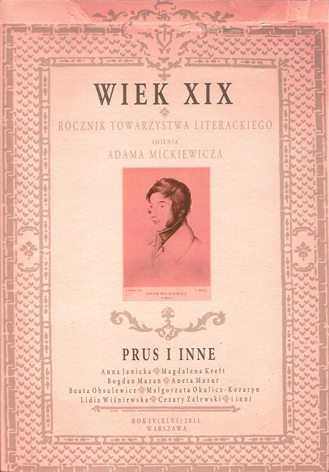Tajemnica progu. Dojrzewanie w „Grzechach dzieciństwa” Bolesława Prusa
A Mystery of the Threshold. Adolescence in Bolesław Prus’s "Grzechy dzieciństwa"
Author(s): Anna JanickaSubject(s): Language and Literature Studies, Polish Literature
Published by: Towarzystwo Literackie im. Adama Mickiewicza
Keywords: Bolesław Prus; "Grzechy dzieciństwa" (short story); childhood; adolescence; suffering
Summary/Abstract: This interpretative essay analyses "Grzechy dzieciństwa", a short story by Bolesław Prus (1883). Various approaches are initially considered to the issues of childhood in the literature of the second half of 19th century and it is against this background that the author positions her considerations. As per this scholar’s concept, the category of adolescence proves to be the most important one in Prus, text, depicted through the experience of loneliness, suffering, and death. Prus has constructed in his work an original eschatology of suffering: anguish and affliction become a threshold that, once passed, leads to maturity. This comes true through experiencing the secret of nature and unveiling the erotic aspect of humanity. The final transgression opens a new world for the main character; this world is full of unanswered questions, though. Thus conceived, coming of age appears to be a never-ending, lifetime process that lasts until a death.
Journal: Wiek XIX. Rocznik Towarzystwa Literackiego im. Adama Mickiewicza
- Issue Year: XLVI/2011
- Issue No: 1
- Page Range: 16-26
- Page Count: 11
- Language: Polish

